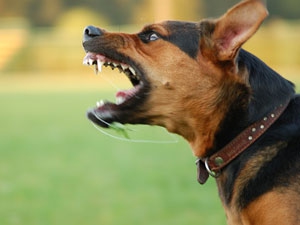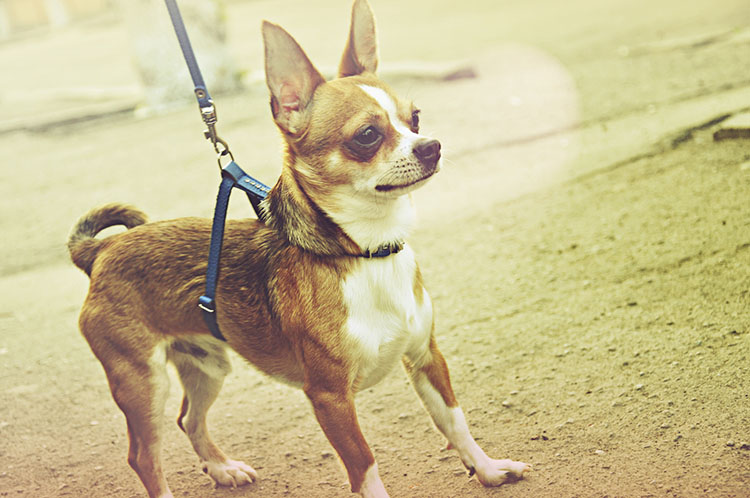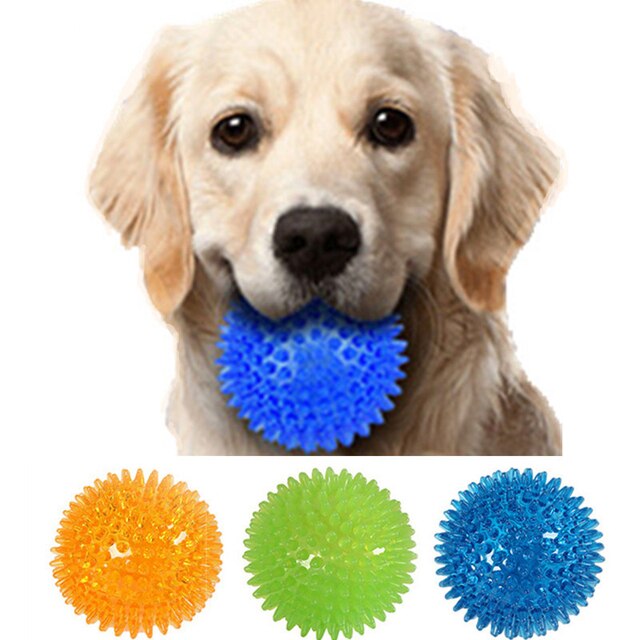
There are many reasons your dog is licking his lips. Appeasement can be as simple as your dog yawning when you shout at it. Some of these reasons are appeasement, like yawning when you yell at it. Others may be related to health issues such as mouth problems or dental disease. If your dog is constantly licking their lips, this could be a sign that there may be something more. These are the symptoms.
Insect bites
Your dog isn't immune from the effects of insect bites. Not only do they itch and lick your dog's lips, they can cause serious health problems. Fleas can cause your dog scratching and licking itself. In addition to the itching and licking, fleas can carry dangerous diseases like tapeworms and can lead to an allergic reaction. Luckily, flea medication for dogs is fairly effective.
Even though a few insects may cause fatal reactions in dogs (and they can), you should immediately seek medical attention for your dog. If your dog is licking his lips from being bitten by an insect, you should seek medical attention immediately. Some bites don’t require treatment. However, a veterinarian can give treatment. The wound can be cleaned with a stinger to speed up healing.
The sting is the most deadly part of an insect bite. Even if you get rid of the sting, the poison can still remain on the skin and cause serious swelling. To ensure that your dog doesn't get further hurt, it's essential to remove the stinger with a flat object such as a credit card. You should consult your veterinarian immediately if you are uncertain if your dog has been stung. Pest bites can lead to infection and disease, so make sure to check with your veterinarian immediately.
After an insect bite, a vet should inspect your dog's face and lips. A vet will likely perform a complete physical exam to rule out any underlying medical conditions if your dog is constantly licking its lips. A veterinarian will look for signs such as soft tissue injury, a bacteria infection, or foreign objects in the mouth. Your dog might be licking other areas of his body than the face in some cases. It may indicate an allergy, pain, or other symptoms.
Dehydration
Dogs tend to lick their lips when they are dehydrated. This can indicate a number of medical conditions such as bloat, periodontitis, seizures, and other issues. It is crucial to find the root cause of your dog's excessive lip-licking and treat it accordingly. One simple way to help your dog is to make sure they have fresh water. If the licking continues, you should seek immediate medical attention.

An infection may be present if your dog is constantly licking his lips. Dogs suffering from diarrhea might also vomit or lick the lips. This condition could be fatal so it is vital to get medical attention immediately. Examining your dog's vomit can help you determine if it has diarrhea. Diarrhea can also cause diarrhea in dogs.
Dehydration can lead to vomiting, loss of appetite, and a lack of saliva. The appearance of a sick dog can be a sign that they are not well. It is important to measure the food and water that your pet consumes. Your veterinarian may suggest that you change your dog's diet or give him a fluid pack. This will help keep him hydrated. A decrease in energy can also be caused by dehydration. A fluid pack may be an effective treatment for dehydration in dogs.
It is vital to take your dog to the vet if you see it licking its lips too much. The cause of unusual behaviour will be determined by your veterinarian. Whether it is a symptom of an underlying medical condition or a symptom of a behavioural problem, a veterinarian will be able to diagnose the problem. Your veterinarian will inspect your dog's mouth, teeth, gums and oral cavity. He will also examine his general health, appetite, and general health.
Survival instinct
Dogs lick their mother's lips to survive. To aid breathing, clean the puppy's mouth, and remove any placental remnants, a mother dog will lick it. The pup can also dispose of their waste and hide away from predators. Similar to humans, this behavior can be seen as protective instincts and could prevent the pup being attacked.
If there is a scent present, it is common for a dog to lick its lips. Dogs that lick their lips can indicate discomfort in their internal environment or mild arousal. Licked lips soothe the licker, but they do not seem to affect the other dog. This behavior is still a mystery despite its many benefits. But it is a fascinating part of our animal's survival instincts.
Stress
If your dog keeps licking his lips, he may be stressed or exhibiting signs of discomfort. This is commonly known as excessive lips licking. It can be a sign that your dog has a health problem. Symptoms of chronic lip licking in dogs include stress, boredom, dehydration, and anxiety. A vet visit may be necessary if the behavior persists.
Some dogs might lick their lips to express nervousness, fear, or anticipation of a meal. Although this behavior is normal, it could be an indication of anxiety or stress. If your dog keeps licking his lips because he's feeling anxious, remove the situations that trigger the behavior and take action. To help your dog manage stress, consult a professional trainer.
You can start to gently treat your dog if it starts to lick its lips when stressed. You should try to avoid rewarding your dog when it licks its lips, since this could be harmful to their health. You should also be aware that your dog might be suffering from pain and will need to take some time to calm them down. Avoid giving your dog treats if they are licking their lips. It may be an early warning sign of a potential health problem or pain.

Lip-licking behavior can be a sign of a variety health problems or environmental issues. Your vet will determine if your dog has stress-related issues or another underlying condition. If the former, a vet may be needed. You can determine the exact cause and treat your dog with veterinary care. Remember that your dog may be lip-licking as a sign of another medical condition.
Compulsive licking disorder
If your dog is constantly licking, it could be due to a number of reasons. A sharp object in the dog's feetpad could cause it to lick constantly. Compulsive chewing can also be a response to orthopedic problems such as hip dysplasia. See your vet to rule any other possible causes. Your veterinarian will perform a veterinary exam to confirm the cause. However, your dog's behavior will not change until you have a confirmed diagnosis.
Psychological disorders such as stress and anxiety can trigger compulsive licking behaviors in dogs. Boredom and separation from owners can all lead to excessive licking. Your dog may continue to lick even if it stops temporarily. If left alone, however, it will likely revert its previous behavior. Your dog might also experience stress from moving or arranging furniture. In these cases, your dog may return to the old behavior when left alone.
Excessive licking is an anxiety-related condition that can be caused by systemic causes or by a dog's sensitivity to various stimuli. It is characterized by the dog constantly licking one area of the body. This can often lead to red, unattractive spots. To ensure a healthy and happy life, you need to treat your dog with kindness and compassion.
Compulsive dog licking may also include frequent tail-chasing or flank sucking, shadow chasing, fly snapping, and shadow chasing. Compulsive behavior could also include repetitive circling. To diagnose compulsive behavior, a behavior specialist will need to meet with the owner and discuss the symptoms. Once the owner has described the behavior in detail, the veterinarian can decide whether or not the condition is due to a underlying problem.
FAQ
Do I choose a puppy or kitten?
This depends on you. Some people love kittens, while others prefer puppies.
However, dogs are more playful and active than their human counterparts. Kittens tend to be very gentle and sleep a lot.
Both types of animals need lots of attention from their parents. They will quickly grow up and will require lots of care.
They will also need regular medical checkups. So, you'll need to spend time taking them to the vet.
What's your favourite pet?
The best pet is the pet you love. There is no right or wrong answer. Each person will have his or her own opinion on which pet is best.
Some believe that cats are better than their canine counterparts. Others believe dogs are more loyal, loving, and affectionate. Still, others argue that birds are the best pet.
Regardless of the type of pet that you decide to get, it is important that you determine what type of pet best suits you.
If you're friendly and outgoing then a dog is right for you. A cat might be the best option for you if your personality is reserved and shy.
Also, consider the size of your apartment or house. A small apartment means that you'll need a smaller pet. You'll need more space if you have a larger home.
Don't forget to give your pet lots of love and attention. Pets need to be fed frequently. They need to be taken for walks. They need to be brushed, and cleaned.
These are the things that will help you choose the right pet for you.
How can I tell if my dog has fleas
If you notice your pet scratching at its fur, licking itself excessively, or looking dull and unkempt, then chances are he/she may have fleas.
If you see any signs of redness on your pet's skin, this could also indicate an infestation by fleas.
You should take your pet to a vet as soon as possible for treatment.
What are the signs that my dog could be sick?
A variety of symptoms may indicate that your dog has a serious illness. Symptoms include:
-
Vomiting
-
Diarrhea
-
Lethargy
-
Fever
-
Weight loss
-
Reduced appetite
-
Coughing
-
Difficulty Breathing
-
Bleeding from below the nose
-
You can find blood in your stool and urine
These are just a few examples. Your vet will know exactly what to look for.
What are my considerations before I get an exotic pet?
There are several things to consider before you buy an exotic pet. It is important to decide if the animal will be kept as a pet, or if it will be sold for profit. If you want to keep it as an animal pet, you need to ensure that there is enough space. You also need to know how much time you'll spend caring for the animal. It is not easy to care for an animal. However, they provide great companionship.
If you're looking to sell the animal then you should find someone willing and able to buy it. Make sure that whoever buys your animal knows what they're doing regarding taking care of animals. It is important to not overfeed your animal. This could lead to other health issues later.
If you are considering exotic pets, you should ensure that you thoroughly research them. Many websites have information on many species of pets. Be cautious not to fall for scams.
What food should I give my dog?
You should feed your dog a healthy diet.
Some foods that are high in protein include chicken, beef, fish, eggs, and dairy products.
Other foods that contain high amounts of carbohydrates include fruits, vegetables and bread as well as pasta, rice and potatoes.
Low-fat foods include lean meats and poultry, fish, whole grains, seeds, and nuts.
Always consult your veterinarian before feeding your dog different types of foods.
Statistics
- Reimbursement rates vary by insurer, but common rates range from 60% to 100% of your veterinary bill. (usnews.com)
- Monthly costs are for a one-year-old female mixed-breed dog and an under one-year-old male domestic shorthair cat, respectively, in excellent health residing in Texas, with a $500 annual deductible, $5,000 annual benefit limit, and 90% reimbursement rate. (usnews.com)
- Here's a sobering reality: when you add up vaccinations, health exams, heartworm medications, litter, collars and leashes, food, and grooming, you can expect a bill of at least $1,000 a year, according to SSPCA. (bustle.com)
- * Monthly costs are for a 1-year-old female mixed-breed dog and a male domestic shorthair cat less than a year old, respectively, in excellent health residing in Texas, with a $500 annual deductible, $5,000 annual benefit limit, and 90% reimbursement rate. (usnews.com)
- For example, if your policy has a 90% reimbursement rate and you've already met your deductible, your insurer would pay you 90% of the amount you paid the vet, as long as you're still below the coverage limits of your policy. (usnews.com)
External Links
How To
How to train a pet dog
A pet dog, or companion animal, is one that offers companionship and emotional support to its owners. It may protect its owner from predators and animals.
It is important that pet dogs are trained to obey their owners and do tasks like fetching things, guarding against intrusions, following commands and performing tricks.
The training period usually lasts between six months and two years. The owner teaches basic obedience skills to the dog, including sitting, lying down, staying, coming when called, walking on command, and rolling over. The owner also teaches the dog how to use basic commands and to respect the dog's natural instincts.
In addition to teaching the dog these basic behaviors, the owner should teach the dog not to bite people or other animals and to respond appropriately to strangers and other unfamiliar situations.